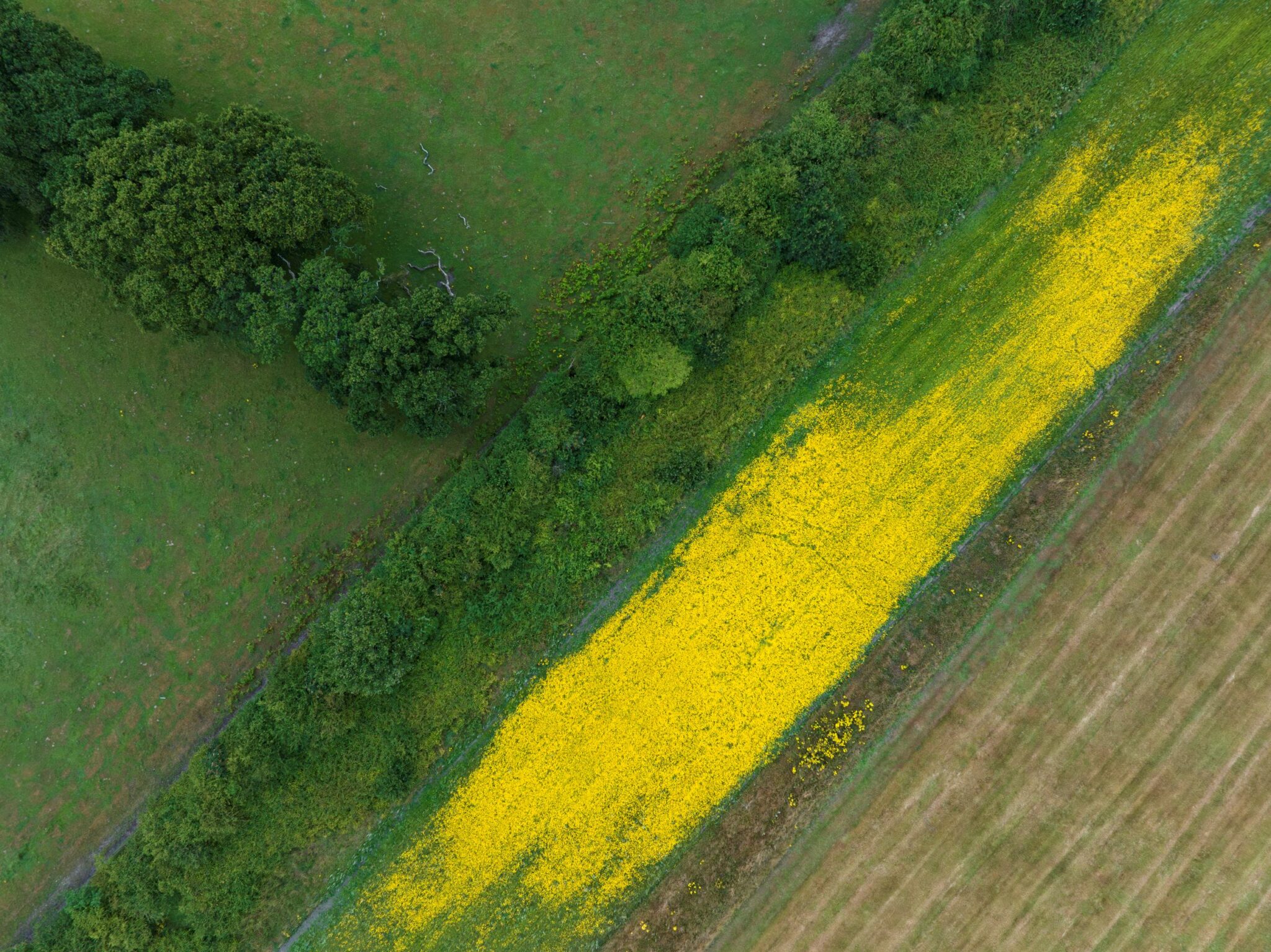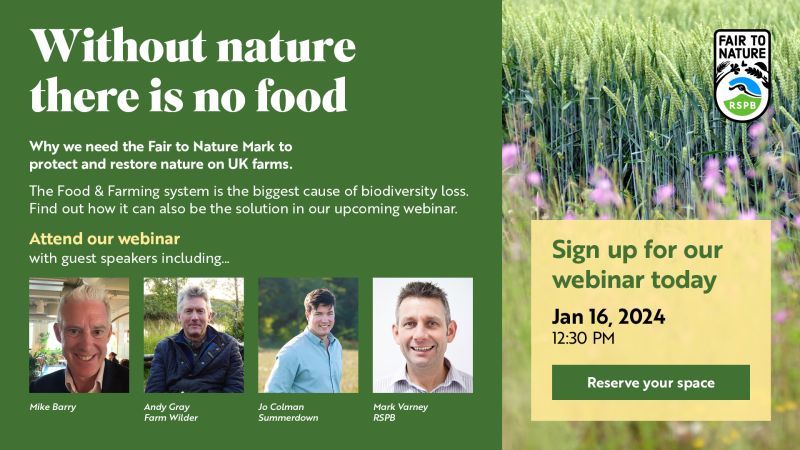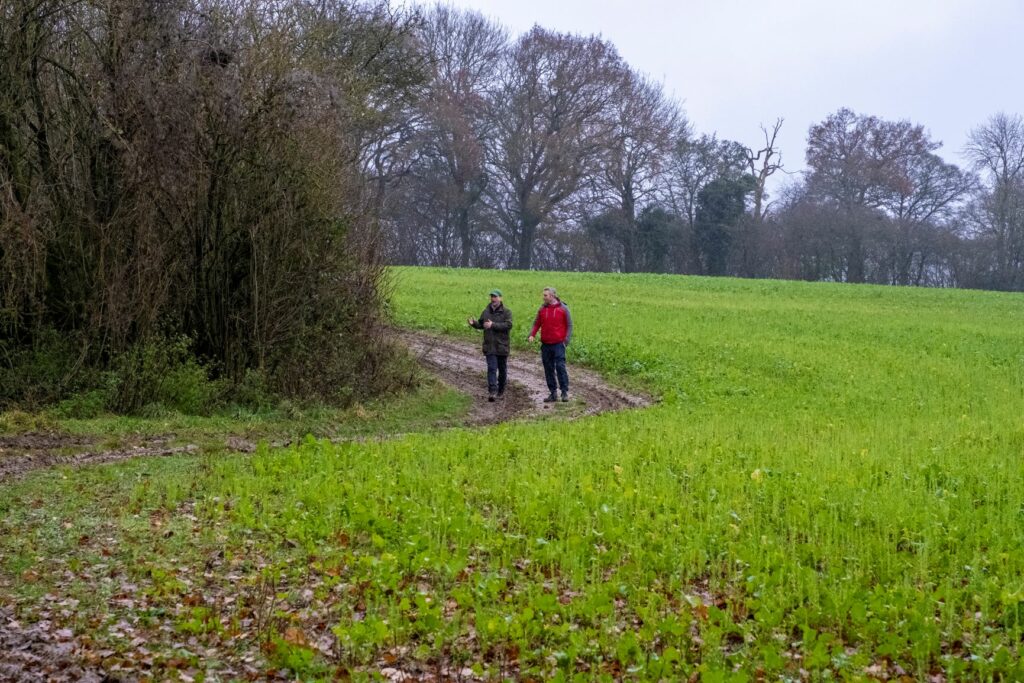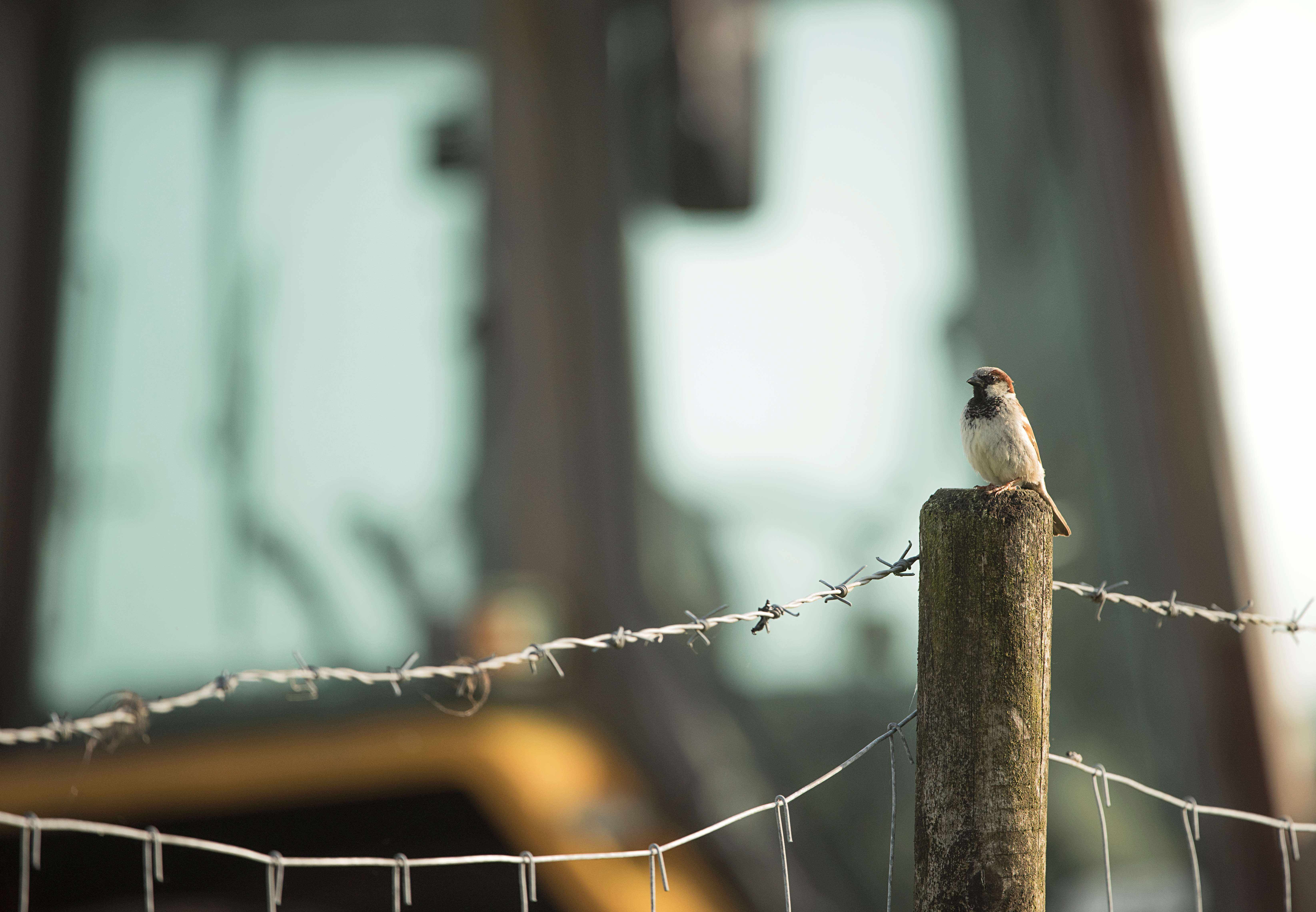
We were delighted to have a full house to listen to our lively discussion, skilfully chaired by Mike Barry, previously Director of Sustainable Business at former Marks and Spencer Chief Sustainability Officer. Two of our panellists, Jo Colman from Summerdown and Andy Gray from Farm Wilder are both celebrating the certification of their products with by RSPB Fair to Nature.

The importance of biodiversity
We heard first from Mark and Andy about the crucial role that biodiversity plays on farms. Not just because nature is beautiful but because of the essential role that nature plays in pollinating crops, the role of ‘beneficial insects’ in managing pests as well as the insects who play an important role in recycling nutrients, such as dung beetles. Here in the UK the rapid loss of nature is visible and worrying. Since the 1970s almost half of our farmland birds, mammals, amphibians, insects and invertebrates have disappeared, along with 97% of our wildflower meadows.
Drawing on insights from the new report from RSPB Fair to Nature, ‘Without Nature there is no Food’, Mark highlighted the importance of creating space for nature on farms. The science shows that allocating 10% of space for nature on a farm gives nature the space it needs. If all UK farms ensure that 10% of their farmed land supports ecosystems, biodiversity loss should be reversed.
How can the food system better incorporate nature?
Andy Gray shared insights from his farm, including his adaptation of regenerative agriculture principles and more recently becoming Fair to Nature certified. He said, “Changing our practices has increased the amount of nature we’ve got”.
“Nature tends to thrive when you’ve got a patchwork of diversity and a patchwork of food sources”, Andy said. He applies this principle in his farming system by having smaller plots of production and diversity within those plots.
“It’s exciting when you change your practices and see the way nature blooms around you because of it”
Andy Gray, farmer
Andy said that other farmers are interested in seeing the changes he has made and that often, neighbouring farmers become converts. Famers are interested in being financially sustainable and the recent changes to farm payments go further to will rewarding farmers for habitat creation. “The joy with RSPB Fair to Nature is that it will help people identify and adopt some of the options that are on there. And those options will pay for fitting into the Fair to Nature certification schemes”, he said.

Is Nature Friendly Farming a viable option for businesses?
Jo Colman shared perspectives on why nature is key for their business. He invited other food businesses and suppliers to think about how they can connect to the natural environment. Jo remarked that the brand connection to nature was part of their core offer to customers.
Mike reflected, “It’s really interesting to hear you differentiate your products around nature as a quality, part of the quality experience for your customer”.
Jo said that because the business takes a long-term view, it then becomes impossible not to think about nature. “We’re wanting to build something that is generational because it is rooted to the land, and we can only make something last so long ifas it is not exploiting the land, drawing out from it more than it is able to give”.
For Andy’s Farm Wilder direct-to-consumer meat boxes, nature is how they connect with shoppers. “To sell meat boxes, you must tell a story. And the nature story is the story that people want to hear. So that connection between them buying from somebody who they see and believe and has that credibility is what they want”.
Andy reflected on the role that a certification scheme, like RSPB Fair to Nature, can help to tell those stories. “Most farmers just want to produce stuff. That’s what they want to do! Therefore, if you want widespread adoption, the joy with these certifications is that the stories are told by a trusted NGO and that story can be donetold for many, many farmers using case studies chosen from amongst us. But it allows a wide- scale farm adoption across multiple farms in a much more efficient way.
When asked about the barriers to aligning nature into a business, Jo explained that a long-term view is key. “The system is hooked on an expansion mindset. Until we can start seeing growth and business as an active regenerative endeavour, rather than just expansive, we’re going to struggle to connect what is good for nature, what’s good for our consumers and our customers, and what’s good for the underlying business.”

Consumer Demand
Nature friendly farming provides a commercial opportunity. Consumers want products that are the result of practices that address, rather than exacerbate exacerbate, the biodiversity and climate crises. And they are using their spending power to support them.
A survey undertaken by Ipsos recently found that over half (56%) of adults want UK farmers to adopt farming practices which preserve and enhance the environment and nature.
These findings build on similar research3 from March last year which highlighted growing consumer concern about nature loss and a desire to halt its decline, with 67% of UK adults found to be concerned with the decline in the variety of UK wildlife compared to 50 years ago.
Jo talked about the role certification plays in supporting Summerdown’s commitments. He agreed that RSPB’s high recognition and trust, as well as the science backed standard that sits behind it, supports their communications.
Tomorrow is grown from our actions today
Contact us today to find out how we can help achieve a great tomorrow
Register Interest
Sidebar form
or email us at fairtonature@rspb.org.uk
